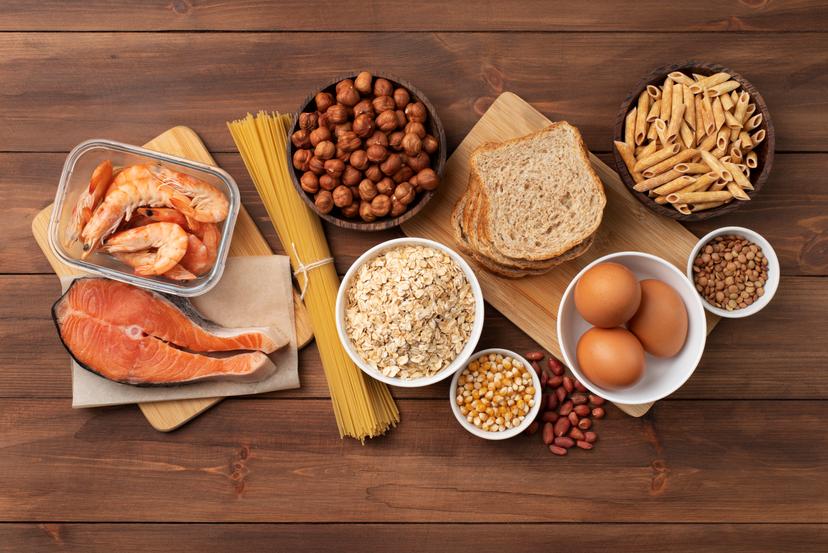June 2025
Paws, Profits, and Progress: The Surge of India’s Pet Care Industry

From treats to tech, the Indian pet care industry is undergoing a dramatic transformation—and it’s not slowing down. In FY2024, the market reached a remarkable USD 10.5 billion, and with a projected CAGR of 5.65%, it’s poised to grow to USD 16.2 billion by FY2032. This isn’t just a story of numbers—it’s a story of love, lifestyle shifts, and how our furry companions are reshaping the consumer economy. While the Indian pet care market is on a boom, the United states pet market is the largest in the world, valued at USD 67.5 Billion in 2024. The market will be valued at USD 106.9 billion by 2032, growing at a CAGR of 5.91%
India’s pet care boom is fueled by the modern family's evolution. As more households adopt elementary family set-ups and dual-income lifestyles, pets have moved from backyard guardians to indoor companions and emotional support animals. With urbanization making space tighter but hearts fuller, families are now finding companionship, therapy, and even fitness buddies in their pets. Add in rising disposable incomes and a newfound cultural shift in how pets are perceived, and the equation is ripe for market expansion.
India is witnessing a significant upswing in pet parenthood and pet adoption rates, a central force behind the pet industry’s upward trajectory. The impact is clear: as pet populations grow, so does the demand for everything from pet food products and animal hygiene products to accessories and services. This evolving dynamic opens up vast opportunities for businesses to design offerings specifically for multi-animal households—think value packs, festive pet outfits, scented toy launches, customized feeding bowls, and nutrition subscription models tailored to pet monitoring and care.
Pet care solutions in India is now far more than feeding and walking. It’s a robust industry encompassing healthcare, fashion, accessories, grooming, fitness, training, nutrition, and entertainment. And pet parents are not holding back. From organic chewables market and hypoallergenic shampoos to collar design innovation and pet resort chains, every aspect of a pet’s lifestyle is getting a luxe makeover.
This transformation is underpinned by science too. Pets have been shown to reduce anxiety, improve cardiovascular health, and elevate mood. They get us out for walks, keep us socially active, and boost dopamine and serotonin. In a country battling high stress levels in urban hubs, pets have become unofficial wellness partners—and the spending follows.
All this activity isn’t just economic—it’s emotional, generational, and deeply cultural. 71% of Indian pet owners now have pets, and over half own multiple animals. Urban millennials are driving this surge, drawn by the emotional fulfilment and companionship that pets offer. Notably, 56% of owners consider pets an integral part of their family.
Transformational Trends Powering India’s Pet Economy
India’s pet care landscape is in the midst of a dynamic transformation, driven by shifting consumer behavior, tech-enabled accessibility, and global investment. A closer look at emerging trends reveals how these forces are rewriting the rulebook on pet parenting across the country and awareness adoption campaign.
- Pet Humanisation:
What’s more fascinating is how pet humanization has catalyzed pet premiumization. No longer seen as “just animals,” pets are now regarded as family—complete with customized beds, designer collars, organic meals, and specialized spa treatments. With growing concern over ingredient sourcing, sustainability, and pet nutrition, pet parents are demanding human-grade, gourmet-level pet foods and cruelty-free grooming products. The result? Brands are scrambling to innovate and upscale. Leading brands like Royal Canin, Drools, and Nestlé Purina are rolling out specialized products that target everything from immunity to digestive pet health. By 2028, this premium segment is expected to lead revenue generation within the pet food industry.
- Pet Insurance:
Simultaneously, pet insurance and wellness is gaining ground—especially in urban centers where veterinary costs continue to climb. Millennials and nuclear families are seeking financial safety nets for preventive treatments, surgeries, and chronic care. This momentum is further bolstered by corporate wellness programs that now include pet insurance as part of employee benefits. Experts anticipate that by 2028, the number of insured pets in India will reach several million.
- E-commerce:
At the heart of this accessibility revolution is e-commerce. Platforms like Amazon, Flipkart, and PetSutra have redefined the way Indians shop for their pets. Whether it’s customized grooming kits, vet-approved meals, or pet training tools, paw parents can now order everything online with doorstep delivery. In 2023 alone, online sales of pet products experienced a remarkable surge—driven by the desire for convenience, variety, and speed.
- Veterinary and wellness:
The surge in veterinary and wellness spending is equally telling. India had over 12,000 veterinary clinics and hospitals as of FY2022, a testament to growing demand for professional pet healthcare. Today’s pet parents are investing in a full suite of pet services including vaccinations, veterinary diagnostic tools, grooming, and nutritional supplements. Alternative therapies, such as CBD-based wellness products, are also beginning to see traction in niche segments.
- Experiential:
This focus on pet wellbeing is matched by the rising popularity of experiential services. With India’s urban middle class expanding rapidly, pet grooming salons chains, pet cafés, pet stores, pet boarding centers, and training facilities have become part of a vibrant urban lifestyle. Cities like Mumbai, Bangalore, and Chennai are leading the way, hosting everything from dog social clubs to luxury pet spas.
Growth Avenues in India’s Pet Industry
- Digital Disruption Meets Pet Care
Technology is transforming how pet owners interact with the market, making pet care smarter, faster, and more personalized. The adoption of wearable tech—including smart feeders, fitness trackers, and health monitor collars—is also accelerating, with usage rates in India nearly double the global average. This digital evolution is opening new frontiers for businesses like animal behavior coaching, telehealth for animals, pet play zones and more. From developing app-enabled smart products to leveraging influencer-driven campaigns and data-backed personalization, the opportunity to engage digitally native pet parents has never been greater.
- Premiumization Redefining Priorities
Quality now outweighs price as the leading purchase driver, especially in pet food. This mirrors a broader regional trend across APAC, where consumers are showing strong preference for premium offerings that support overall wellness product launches. For businesses, this is a signal to focus on high-quality, vet-formulated, and function-driven foods and supplements. Products that cater to specific health concerns—such as skin sensitivities, joint issues, or digestive health—are fast becoming household staples, forging deeper brand loyalty in the process.
- Tailored Nutrition: The Rise of Specialized Pet Food
The Indian pet parent is more informed than ever—and that’s reshaping the food aisle. This gives brands an edge to create hyper-targeted nutritional lines backed by science. The clearer the benefits, the stronger the trust—making room for long-term relationships between pet brands and health-conscious consumers.
- Green is the New Gold: Eco-Friendly Pet Products
Sustainability is fast becoming a differentiator in the pet care industry. Around 13% of Indian pet parents now prioritize eco-friendly purchases, a figure that’s nearly twice the global average. This eco-awareness is translating into increased demand for products that use biodegradable materials, recyclable packaging, and responsible sourcing. Brands that can authentically champion the sustainability narrative are better positioned to tap into India’s growing base of environmentally conscious consumers—and win both trust and market share.
- Evolving Pet Services for the Modern Owner
As the bond between humans and pets deepens, so does the appetite for value-added services. There is a marked uptick in consumer willingness to pay for services that enhance their pet’s comfort, health, and happiness. In a space where convenience meets care, businesses that offer flexible, personalized, and emotionally resonant services are carving out powerful niches in a fast-expanding ecosystem.
Remarkable Business Boom
Global corporations are also turning their gaze toward India’s thriving pet industry. Giants like Mars, Royal Canin, and Nestlé Purina are scaling up investments to meet the surging demand. In 2023, Mars pledged INR 800 crore for expanding its Telangana operations, while Nestlé inaugurated a $450 million pet food facility in the U.S., ensuring robust supply pipelines that support India and beyond. The market is now more competitive, more localized, and increasingly digital-savvy.
This fertile ground is nurturing not just brands, but entrepreneurship. Across metros and Tier-II cities alike, start-ups are mushrooming with bold ideas and personalized offerings. Think Delhi’s Heads Up For Tails, Mumbai’s Captain Zack, Indore’s Licks and Crunch, or Bengaluru’s Dogsee Chew. From tech-driven feeders to Ayurvedic treats, these ventures are marrying modern convenience with local sensibilities.
One striking innovation, hydration tech bowls came in April 2024, when Petlibro Inc. launched Polar, a refrigerated wet food feeder that uses semiconductor cooling tech to keep food fresh for up to three days. Controlled through a smart app, it’s a game-changer for working pet parents—and a symbol of the sector’s tech leap.
Established conglomerates aren’t staying on the sidelines either. In August 2024, Godrej Consumer Products announced its foray into pet care with a hefty INR 500 crore investment. Backed by the R&D muscle of Godrej Agrovet, the venture aims to build a formidable, scalable presence by FY2026. When legacy giants move in, you know the category has arrived.
The future?
Expect more personalized breed specific diets, subscription grooming kits, vet consultation apps, and AI-powered pet analytics. As Indian consumers demand more transparency, convenience, and ethical practices, brands will need to evolve or risk being left behind.
India’s pet care industry is no longer a side niche. It’s a vibrant, emotionally charged, and economically potent sector that is reshaping how we live, love, and spend. The market may have begun with kibble and collars, but it’s quickly becoming a cornerstone of modern urban living.
In short: if you think India’s pet market has peaked, you haven’t seen anything yet. The tail is wagging the economy—and everyone’s paying attention.
Subscribe to our newsletter
Promise we won't spam you.
Share
Read More

July 2025
Gluten Be Gone: The Rise of the Gluten-Free Wave in Asia-Pacific’s Food Landscape
Asia-Pacific gluten Free Food and Beverages market is projected to witness a CAGR of 9.14% during the forecast period 2025-2032, growing from USD 2.16 billion in 2024 to USD 4.34 billion in 2032.

July 2025
India’s Quick Commerce Boom: The Rise, Race, and Reality of 10-Minute Delivery
Valued at USD 3.05 billion in FY 2024, India’s Q commerce market is not just growing, it’s exploding. Forecasts suggest it could soar to USD 13.38 billion by FY 2032, growing at a CAGR of 20.3%.

July 2025
India’s E-Gaming Market: A Digital Playground Set to Explode
Indian e-gaming market is set to experience a whopping 25.37% CAGR during the forecast period from FY2024 to FY2031, growing from USD 1.71 billion in FY2023 to a massive USD 10.44 billion by 2031.
REACH US



